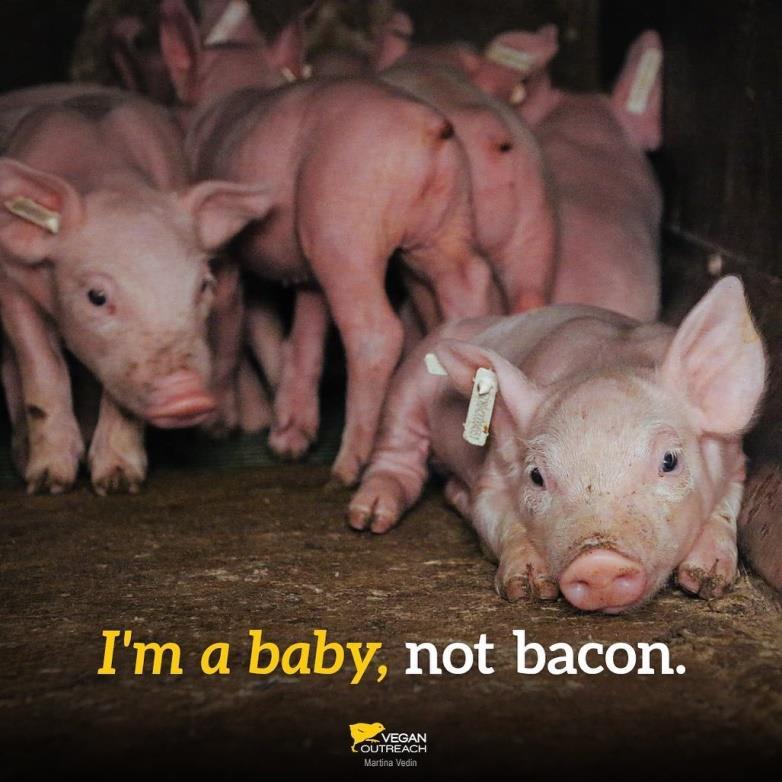Embracing the Universal Concern for Veganism and Animal Rights: A Global Movement Towards
Compassionate Living
Introduction: In a world increasingly conscious of ethical choices and environmental impact, the universal concern for veganism and animal rights has emerged as a pivotal movement. With a growing understanding of the interconnectedness of all life forms and the detrimental effects of animal agriculture on both animals and the planet, people worldwide are embracing veganism as a compassionate lifestyle choice. This article delves into the multifaceted dimensions of this global phenomenon, exploring its ethical, environmental, and health implications while emphasizing the imperative for collective action to promote animal rights and sustainable living.

Understanding Veganism
Veganism, as a philosophy and lifestyle, goes beyond dietary preferences; it embodies a profound respect for sentient beings and a commitment to minimizing harm. At its core, veganism advocates for the abolition of animal exploitation in all forms, including food, clothing, entertainment, and experimentation. This universal concern for veganism and animal rights transcends cultural and geographical boundaries, resonating with individuals from diverse backgrounds who share a common ethos of compassion and justice.
Ethical Imperatives
Central to the universal concern for veganism and animal rights are ethical considerations regarding the treatment of animals. Advocates argue that all sentient beings, regardless of species, possess intrinsic
value and deserve to live free from suffering and exploitation. The systematic exploitation of animals for human consumption raises profound moral questions about the ethics of commodifying living beings for profit and pleasure. By adopting a vegan lifestyle, individuals align their actions with the principle of non-violence and extend their circle of compassion to include all species.
Environmental Impact
Beyond ethical concerns, the universal concern for veganism and animal rights also encompasses the pressing environmental imperative. Animal agriculture is a leading contributor to deforestation, habitat destruction, water pollution, and greenhouse gas emissions. The intensive farming practices associated with meat, dairy, and egg production exert immense pressure on natural resources and contribute to climate change. Recognizing the interconnectedness of ecological systems, advocates emphasize the urgency of transitioning towards plant-based diets to mitigate environmental degradation and safeguard biodiversity.
Health and Wellness
In addition to ethical and environmental considerations, the adoption of a vegan lifestyle offers significant health benefits. Numerous studies have demonstrated the link between plant-based diets and reduced risk of chronic diseases such as heart disease, diabetes, and certain cancers. By prioritizing whole, plant-based foods rich in nutrients and antioxidants, individuals can enhance their well-being and longevity. The universal concern for veganism and animal rights thus extends to promoting holistic health and fostering a culture of preventive medicine.
Cultural Diversity and Inclusivity
While the universal concern for veganism and animal rights unites individuals under a shared ethos of compassion, it also acknowledges the diversity of cultural practices and traditions worldwide. Recognizing that dietary choices are deeply intertwined with cultural identity, advocates emphasize the importance of promoting veganism in a culturally sensitive and inclusive manner. By celebrating culinary diversity and highlighting plant-based alternatives inspired by various cuisines, the vegan movement seeks to bridge cultural divides and foster dialogue rather than imposition.
Challenges and Opportunities
Despite the growing momentum of the vegan movement, significant challenges persist on the path towards universal adoption. Cultural norms, economic interests, and entrenched dietary habits pose formidable obstacles to widespread veganism. Moreover, misinformation and misconceptions about plant-based diets continue to circulate, undermining efforts to promote animal rights and environmental sustainability. However, amidst these challenges lie unprecedented opportunities for innovation, education, and advocacy. By harnessing the power of social media, grassroots activism, and policy advocacy, proponents of veganism can effect meaningful change at individual, societal, and institutional levels.
Collective Action and Solidarity
Ultimately, the universal concern for veganism and animal rights calls for collective action and solidarity on a global scale. By amplifying diverse voices and forging alliances across movements for social justice, environmental sustainability, and animal welfare, advocates can catalyze transformative change. Initiatives such as Meatless Mondays, vegan outreach programs, and legislative advocacy campaigns demonstrate the power of collective action to shift societal norms and policies towards greater compassion and sustainability. As individuals, communities, and nations unite in the pursuit of a more just and harmonious world, the universal concern for veganism and animal rights serves as a beacon of hope and possibility.
Conclusion: In conclusion, the universal concern for veganism and animal rights embodies a profound shift in consciousness towards compassion, sustainability, and justice. By challenging the status quo and envisioning a world where all beings are treated with dignity and respect, the vegan movement inspires individuals to align their values with their actions. As we confront the ethical, environmental, and health challenges of our time, the imperative for universal veganism and animal rights has never been more pressing. Through collective action, solidarity, and unwavering commitment, we can create a future where compassion prevails and all creatures thrive in harmony with nature.
website: https://cruelty.farm
